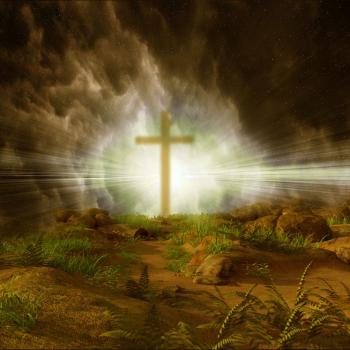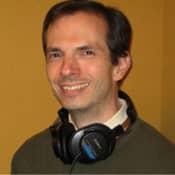Ilana answers, "I'll have you."
Ben, who has been alienated from the community because of his sins, confesses them to Ilana who is acting as a stand-in for the godlike Jacob. In the sacrament of confession, a Catholic penitent confesses his or her sins to the priest who is acting in the person of Christ. The sinner sincerely asks for forgiveness and the priest grants it, thereby reconciling the sinner to the greater community. In granting Ben forgiveness, Ilana welcomes him back into the community as well. It's my favorite pop culture reflection of the opportunities God offers for redemption, and "Lost" deserves credit for taking the story down that road.
The story element of "Lost" that irks most viewers, however, is the choice to have half the final season take place in the afterlife. Many thought it was a waste of time and didn't stay true to the series. In terms of staying true to the series, religious and supernatural subtexts were prevalent throughout "Lost's" six seasons, so I disagree.
It wasn't a waste of time because death and the afterlife is a topic our culture rarely addresses, though it should. After all, no matter how many vitamins we take and advice we follow about staying perpetually young, we're all going to die some day. So, what happens next? Do we cease to exist or is there something more? If there is something more, do the choices we make in this life affect what happens in the next? Does it matter if our primary focus is indulging our own desires or is there a value in sacrificing ourselves for a greater good?
In setting much of "Lost's" final season in a place that resembles purgatory, it demonstrated that our choices in this life make a difference in the next. For instance, many people have the impression that Christians believe God sends bad people to hell. What Christians actually believe is that we send ourselves to hell, by separating ourselves from the love and will of God. Hell is, therefore, a choice. A secondary character, who remained unrepentantly evil until his dying breath, was shown in this afterlife as frozen in a hellish state from which he would never escape. On the other hand, the characters who engaged in self-sacrifice found themselves in a much better situation than those who thought primarily of themselves. There was still a journey toward being perfected they needed to undergo before completely moving on, but they achieved that, eventually.
For people expecting some kind of sci-fi resolution, this ending was a shock. Faith, it turns out, is just as real as science, and people who suffer in this life can find happiness in the next. The ending was heart-breaking yet hopeful, leaving an indelible impression that will stay with me forever.
Did "Lost" do everything perfectly over its six season run? No. What TV series has? But it succeeded far more than it failed. Lindelof and Cuse told a transcendent story about real people dealing with temporal, moral, and spiritual struggles. Those are the kinds of stories that last. Those are the kinds of stories that will continue to matter.
Visit Tony Rossi's blog to read a more detailed commentary about the final episode of "Lost."





